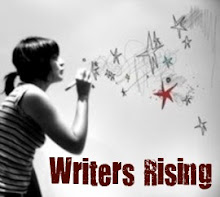 |
| Virginia Woolf |
Loss upon loss
Fears the greater loss
Still.
Imagine Virginia Woolf at thirteen. She lives in a busy household that centers around her mother, her mother who is forty...her mother who takes care of seven children-no eight because there’s one yet at home… a child not spoken of… a child who will disappear soon…a child who is called an idiot-child by Virginia as was the custom of the day. Imagine her mother is married to a man, her second husband, who is fifteen years older, a writer, and demanding. Imagine Virginia at thirteen in this busy house of guests and happenings… the same Virginia we all know through her writing… the Virginia who loses her mother on May 5, the same day of my mother’s death. Imagine Virginia at thirteen. She carries the presence of her mother (as I do) while her mother is long gone. She wrote in Moments of Being:

“I could hear her voice, see her, and imagine what she would do or say as I went about my day’s doings. She was one of the invisible presences who after all play so important a part in every life.’’ (80)
And as Virginia pours out her heart-words both troubled and turbulent in To the Lighthouse, a work of fiction that’s autobiography, she becomes empty and unbound to this once compelling presence of her mother. She asks, “Why, because I describe her and my feeling for her in that book, should my vision of her and my feeling for her become so much dimmer and weaker?” (81).
And while writing again about her mother,
she worries that she will erase her completely.
 |
| Columbine surrounding the bust of Virginia Woolf, sculpted by Stephen Tomlin. Photograph by Pamela A. McMorrow A selection from this post originally appeared in Oasis Writing Link. |



